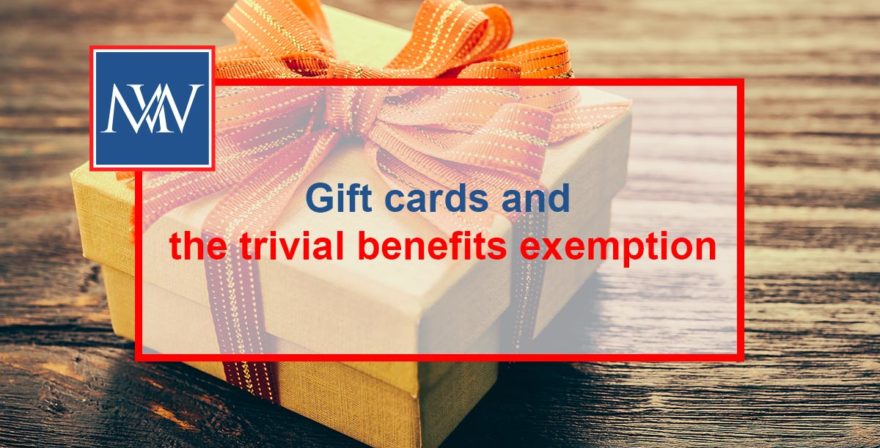
Gift cards and the trivial benefits exemption
The trivial benefits exemption allows employers to ignore benefits in kind that cost £50 or less for tax purposes, as long as the conditions of the exemption are met. Where the exemption applies the benefit does not need to be reported to HMRC.
Staying within the scope of the exemption is perhaps easier said than done.
To qualify, the benefit must not be provided as a reward for services. This means, for example, giving an employee a bunch of flowers as a thank you for staying late to meet a deadline will not fall within the scope of the exemption, even if the flowers cost the employer £50 or less.
Further, the exemption only applies to benefits in kind – cash or vouchers which are exchangeable for cash do not qualify. The exemption is also lost if a provision is made via a salary sacrifice scheme.
Unless the employee is a director of a close company, there is no limit on the number of tax-free trivial benefits that can be provided in a tax year; close company directors are subject to an annual cap of £300.
The problem with gift cards
HMRC have recently drawn attention to a potential problem that may arise where an employer uses a gift card to provide an employee with trivial benefits. It is easy to see how an employer who tops up a gift card several times a year would be confident that the trivial benefits exemption applies, provided that each top-up is less than £50 and the other conditions are met.
However, rather than considering each top-up in isolation, HMRC’s approach is to treat the gift card as a single benefit and look at the total amount put on the gift card in the tax year – if this is more than £50, their view is that the trivial benefits exemption does not apply.
Example
An employer is keen to make use of the trivial benefits exemption to provide employees with tax-free benefits. The employer provides each employee with a gift card at the start of the tax year with a balance of £30. The employer then tops up the gift card by £30 each month. The gift card can only be used for purchases; it is not exchangeable for cash.
As each top-up is less than £30, the employer thinks that the trivial benefits exemption is in point and does not report the benefit to HMRC.
However, from HMRC’s perspective, the employer has provided employees with a benefit that cost £360 for the tax year – as this is more than £50 the trivial benefits exemption does not apply.
The solution
Employers should avoid topping up gift cards – this trap can be avoided by providing employees with a separate gift card each month. Changing the nature of the gift card each time further supports the view that each benefit stands alone.
Need Accountancy Support?
For information on bespoke training, or if you have any other questions for Makesworth Accountant, please fill in your details below
















 151
151